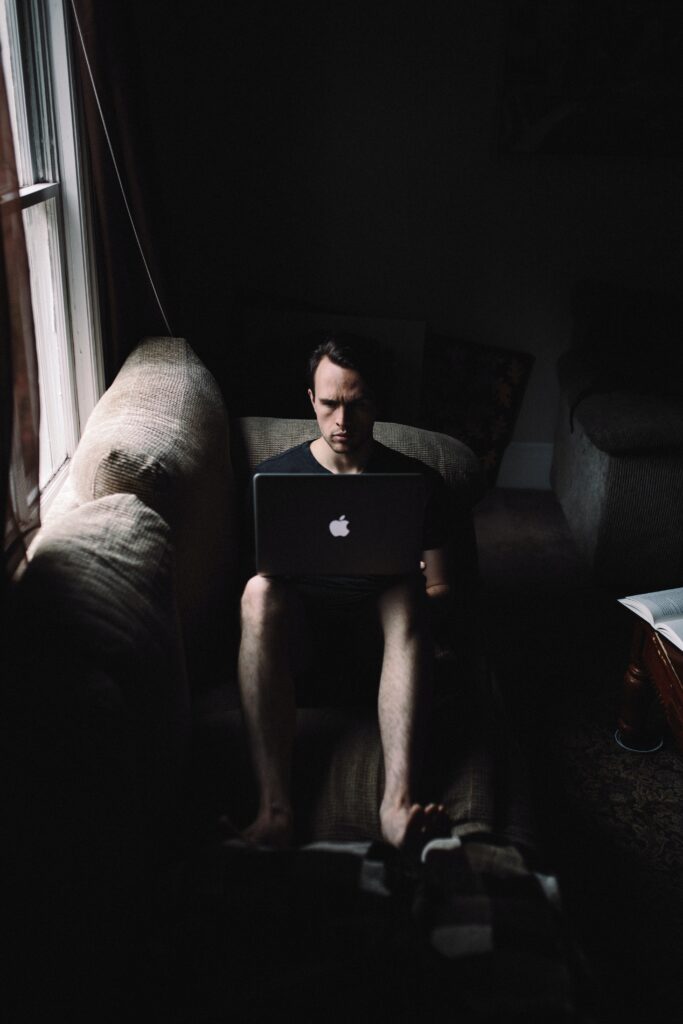In the year we all went into another lockdown, the incidence of binge eating disorder (BED) has gone up – just as the restrictions curtailed people’s activities, BED spiked because it is a disorder that particularly thrives in isolation.
As individuals were forced to isolate themselves from friends, family, work colleagues and almost all public interaction, it caused fractures in the support networks relied upon by people with eating disorders.

As Action Mental Health marks Eating Disorder Awareness Week 2021 – with a focus on BED – Deborah McCready, project worker with the charity’s specialist eating disorder service, AMH everyBODY gives an insight into how BED flourished in lockdown.
“In the backdrop of a pandemic, it’s significant that eating disorders thrive in isolation and it’s the one thing that we have all been forced into in the past year,” she explained. “We have all been more isolated and we are all finding that our normal coping mechanisms may have changed and that we have had to get more creative to develop new ways of coping. We haven’t been able to go out to chat with friends or get out into fresh air or pursue the hobbies that would have kept us well.
“Any eating disorder is a mental health condition; it’s a way of coping with difficult or distressing situations in life so it’s a coping mechanism and at the minute things have increased where our stress and anxiety have increased and the one that that is readily available for people to have some control over is food, so that’s why it has increased eating disorder during the pandemic.
“There are misconceptions that it’s young people but it’s a mental health condition so can affect people from every single walk of life and they have no particular look, shape or size. They are as diverse as the people they affect.”
The rest is best left to those whose daily battle with their binge eating disorder has been vastly improved by the intervention of AMH everyBODY.
Binge eating disorder is exhausting. Not only are you battling your own thoughts and feelings, that inner critic in your head (the eating disorder voice that often triggers a binge) but then there’s also the shame from medical professionals, family and friends that this is something you’re choosing to do to yourself. I was so lucky that I had a very compassionate GP who was able to signpost me to your service for support. That hasn’t always been the case though. I’ve lost count the amount of times over the years I’ve tried to speak about my struggles with binge eating disorder, only to be given weight loss advice. One GP gave me a leaflet for Slimming World and told me to keep the foods I binge on out of the house.
It’s felt like people just see a man in a larger body and that’s all they see. They see my weight before they see me. I know now that the weight stigma has delayed my access to treatment and support that I would have received if I had the very same symptoms but was in a smaller body. Feeling dismissed and shamed for my weight only left me further isolated and increased my binge behaviours. The very diets that were being prescribed to me led my binge eating disorder to spiral out of control. I was absolutely miserable and felt like I was failing at very corner, whilst constantly having to justify that I even deserved support. The harder I tried to diet, the bigger and more catastrophic the binge, and the more intense the feelings of shame after, and the cycle continued like that for a number of years.

From my very first meeting with AMH everyBODY I was treated like a human being. I was asked more about my feelings, what else was going on in my life, at no point at all during our whole support have I ever felt judged, I wasn’t reduced to a number on a scale. I can’t even begin to describe what that alone has done to remove the shame, and in turn reduce my bingeing. The biggest turning point for me was taking shifting the focus completely away from weight and instead looking at health behaviours, things like being able to express and communicate my feelings with my family. Looking at ways I can manage stress and the environments that can be triggers.
I was also encouraged to start to learn to tune in and listen to my body, to learn to identify hunger and fullness cues, move away from rules and restrictions around food and also reframe some of my critical thinking. I found joy in walking again, previously I viewed exercise or movement as pressure and was only successful if I was focusing on weight loss or numbers. When I started to focus on how my body actually felt and that walking was a time for me to relieve stress, I started to get so much joy from it. It didn’t feel like pressure. I was learning to tap in to and trust and listen to my body.
My advice to anyone supporting a person with binge eating disorder is to listen to them without judgement. The shame of binge eating disorder sits so heavy on your shoulders and when you’re met with support and understanding, when people see you as a whole person that’s when you start to recover.
“I can’t quite remember just exactly when my experience with binge eating disorder began, but from early childhood I’ve felt a deep shame about my body. My first experience of body shame was during P.E in school. I was left out of team sports because my body was bigger than the others so assumed that I couldn’t be as good at the sports. I was picked last and during hockey matches I was overlooked and dismissed. I felt completely invisible. Everybody else thought my body was wrong, so it wasn’t long before I just stopped trying. The shame others made me feel about my body made me just want to hide myself away, and that’s exactly what I did. That’s when food became my comfort, my distraction from the deep feelings of self-loathing I had been taught about my body. We aren’t born believing our bodies are wrong, that’s something we learn from others and that body dissatisfaction was just one of the reasons behind nearly two decades of binge eating disorder.
I was probably about 12 when I started my first diet. Of course this only made things worse. My obsession with those numbers was anything but healthy. The stress and shame over my body became all consuming. Before others made me feel like my body was wrong and the shame started I actually felt like I probably was quite healthy. Healthy in the sense that I had no feelings of self- hatred, I wasn’t binge eating, I did actually enjoy sports and I was certainly less stressed. My silence and isolation became a prison. My shame was an iron gate keeping me trapped. Any time I felt any form of pain, I binged.
I was overlooked for a promotion in work, I binged. I fought with family, I binged. I felt shamed at a doctors appointment, I binged. My marriage broke down, I binged. I binged any time I dealt with pain to temporarily numb myself, but then the disgust I would feel after started the whole process all over again. Living with an eating disorder is like having a bully in your head waiting for you to trip up, offering you a solution to ease the distress but then making you feel bad for “giving in.”
For years I didn’t tell anyone about my binge eating disorder because honestly I didn’t even realise it was recognised as a serious eating disorder until I saw something shared online. An article that spoke about it not being a choice, that it wasn’t about greed or lack of will power or just eating too much. That it was a mental health condition and that a binge felt out of control. That’s exactly how I felt, it was almost like an out of body experience and felt so distressing because I felt powerless and unable to stop. I didn’t enjoy or even taste food during a binge.
In fact, my relationship with food because so disordered that I couldn’t even remember the last time I fully enjoyed or felt satisfied with food. What I’d like people to understand about binge eating disorder is that it is never really about the food. For me it was all about how I felt, and I didn’t know how to deal with any of those feelings, or deal with any early trauma.
Talking helps. It so scary to speak up, especially if you’re apprehensive about being believed but if you are suffering in silence you deserve support and every time you start talking you take away some of that shame. You take the power away from your eating disorder.
Because of the support I’m receiving from AMH everyBODY I feel free. I feel lighter in my head. Now I don’t feel pushed in any way to do things, because of other people’s choices. I’ve been able to switch off from hating myself and actually start to see that actually I do have a lot of strengths that I just hadn’t been paying any attention to. I feel like I can cope a bit better, and have hope that I can continue to find myself.
If you live in the Southern Health Trust Area you can contact the AMH everyBODY Team – T: 028 3839 2314 or E: [email protected]
